Love as the Price of Liberty
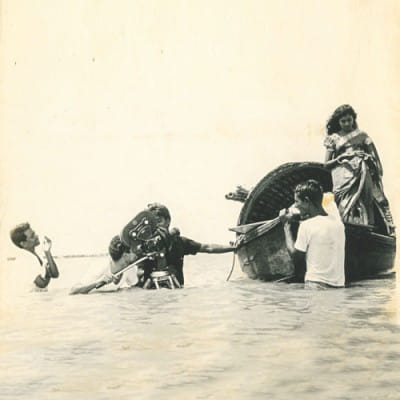
The three-four years of my life with Zahir Raihan seemed to have been veiled with a translucent covering of transience. We came to be intimate as we worked together in films; I adored his fervor, he had a tireless approach all the while. I fell in love with his movies, and that love lead me through a pavement to his aural excellence. And to a common, overwhelming rhythm, our life-harmonies came to a sync. I believe he had the equal feelings for me, too. Every time I looked up to Zahir Raihan, I witnessed a graceful form of fortitude. Far ahead of his time with skills and courage, he had made Sangam, the contemporary super-duper hit. He directed the cinemascope film Bahana. He had a savoring knack for experimenting with everything. I never knew it was possible to make a film within fourteen days. Zahir Raihan showed it was very much possible with his expeditious take on Dui Bhai.
The artiste's way of writing was parallelly offbeat. He never let the wondrous charm fade. Say, a group of his acquaintances are sitting along with him, and one says – 'Zahir Bhai, we need you to write a piece for our publication'. And in a jiffy, he would start narrating! Somebody else had to pick up the pace quickly and take dictations, he had been THAT spontaneous! He was so mellow, it would seem that he might have memorized it all a short while ago. I would wonder, how come this man did not even need to catch a breath, for goodness' sake! He would mostly sit on the bed, smoke a cigarette with a cup of tea, and let his imaginations maunder. Although he was very friendly, he would talk very little. I was lost in his bewildering marvel for a long spell after our marriage.
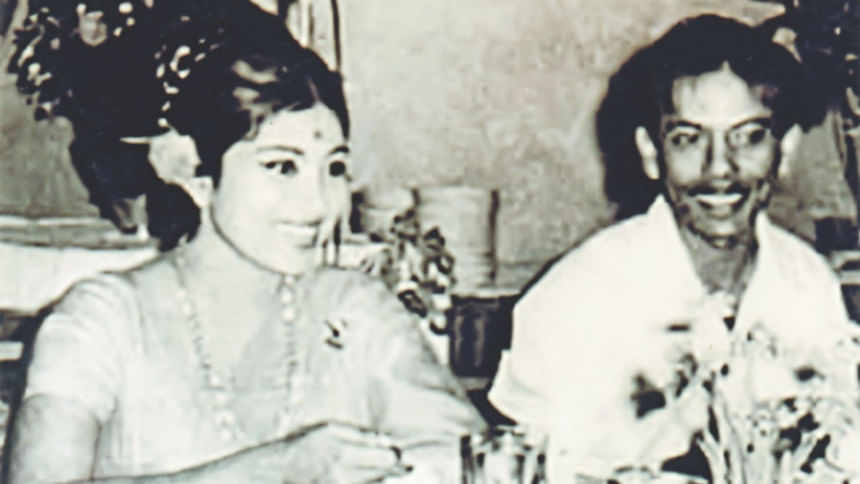
I would say that Zahir Raihan had a rather stoic attitude towards his family, not that it ever stopped me from being proud of having him as my husband. My children may not have inherited great wealth or ancestral fortune, but the plethora of true love and affection never failed to cover up. I was lucky that we had a common string in our career path, otherwise I would have to face much more troubles. I was devastated when Zahir went missing. I did not know what to do, what to think, what to believe. Nobody could assure whether he was dead, or abducted, or was about to return from any shelter. An all succumbing pandemonium drove me to the edges of sanity, as I counted each day for his return. Zahir Raihan never cared to stash money for future repose, not a single penny he had left in the bank. We belonged to a joint family. My mother had died and my father was ill.
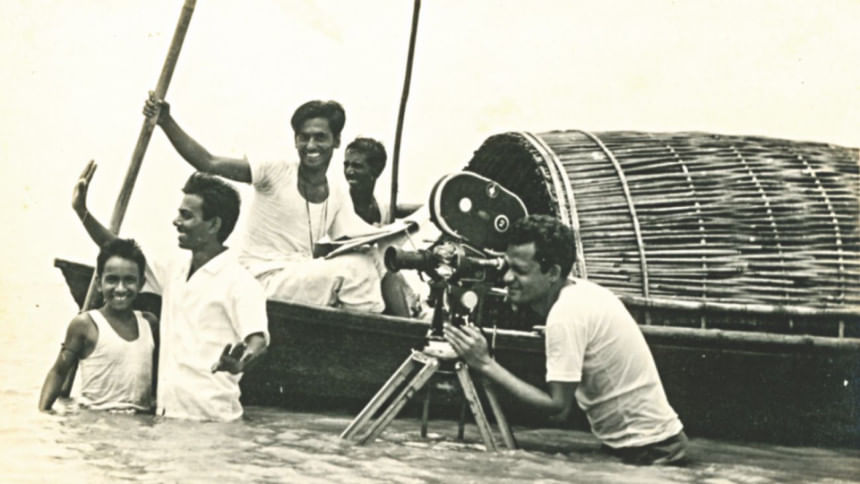
This 'perhaps a widow' had to take care of her little siblings along with her own children, giving up on her career as a glamorous, promising heroine. There were days when I did not even have the money to buy milk for my children. I had to sacrifice the prime time of my life for the sake of helping my kin to survive. I was only nineteen when I married Zahir, and became a widow at twenty-three. Many have asked me how I managed to do such a good parenting all alone, now that my children are successful in their careers. I have faced many a storms upfront in my life, and held on strong through much. Those days are now gone, and I have no regrets. Tagore's Jodi Tor Daak Shune Keu Naa Ashe, Tobey Ekla Cholo Re had been somewhat like a motto in my life.
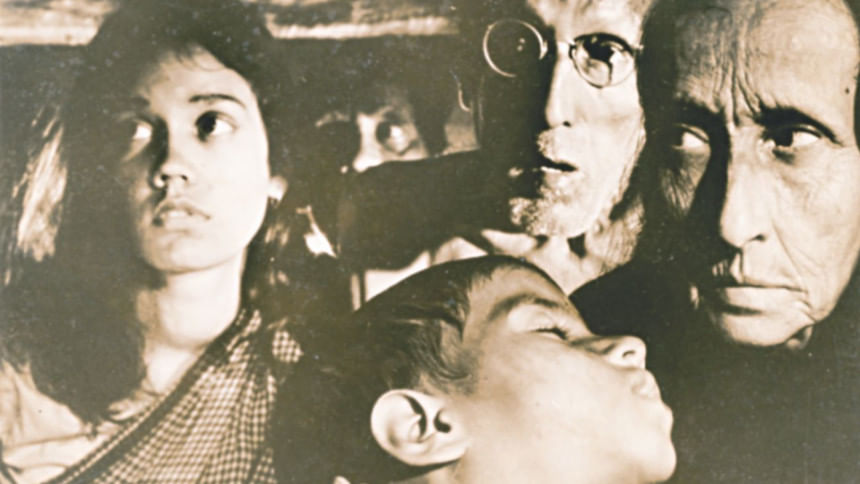
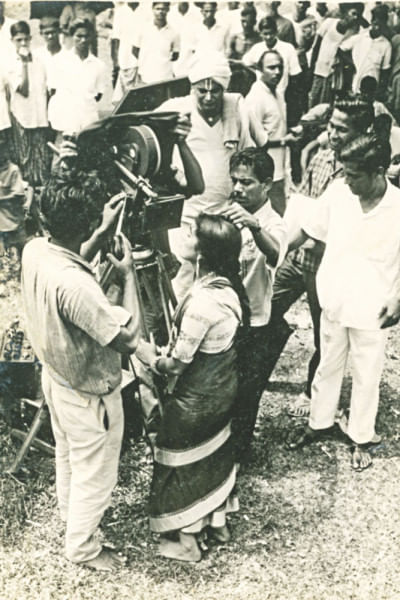
I helped my sisters develop their careers in the film-industry. My father was absolutely against letting Bobita come to movies. He wanted us to complete our studies before everything else. I myself came to the field right after my intermediate exam, and began my BA course later. Zahir was ready to give Bobita a break that he thought she deserved, but Baba was very much upset at this. We had to persuade him a lot to convince. Champa's husband had also had second thoughts about her coming to films. Later he agreed, as he really honored me. And together we acted in the film Tin Konna.
I had to accept other character roles as well alongside lead roles to cope with the difficult times. I needed money, and I have no shame in accepting the truth. In any circumstance, I do not think any artist ever becomes 'petty' by doing side roles. Eventually I hooked myself up with productions and behind-the-camera activities. Luck embraced me with this attempt as well. The credulous days of my career had been adorned with the company of many virtuoso directors. Their impressions caught deep in mind had inevitably led me to the path to a strong directorial debut. I would sit beside Zahir Raihan and quietly observe everything he did when he undertook the editorial errands. I would try to comprehend the reasons, why he did what he did. I would also make him tea, as he needed it at a regular interval while writing scripts. He would only smile in appreciation, and say –'I love it when you are by my side'.
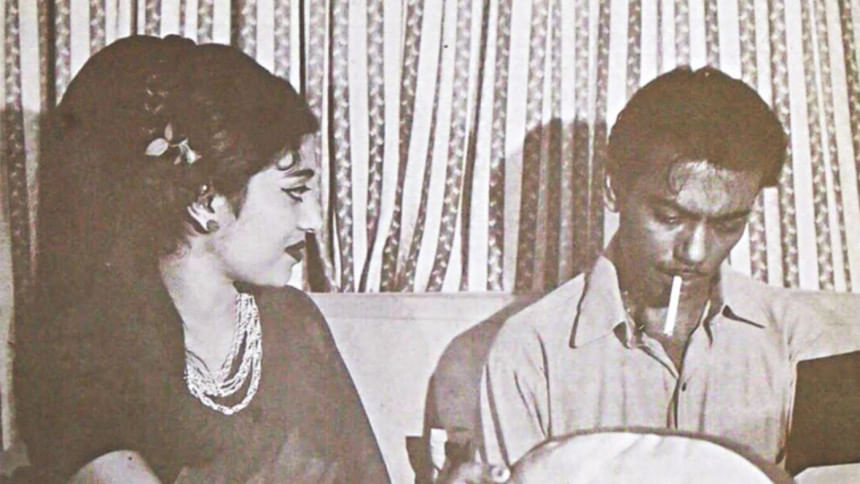
We resided on a rented house in Eskaton's Dilu Road when the Liberation War commenced. It was then I first came to see the anxious, distressed avatar of Zahir Raihan. We could hear shots being fired now and then. My children were still infants. Zahir simply gave his car away to Kazi Zafar to let it be used by the freedom fighters. The next morning he left home very early. After a while, he asked me to also escape from that house. I had to leave in such a short notice that I could not take anything along. About thirty minutes after our evacuation, the Pakistani military raided that house. Having failed to capture us, the barbaric troop demolished everything they found. From that day began my hardships of seeking shelters and ration. At one point, Zahir had to leave for Kolkata. After receiving a letter, I also had to take the petrifying risk to follow his trace. It took me fifteen days to reach Kolkata. There I found him, still drenched in welfare works beyond any care for his own comfort. He kept on saying – 'We will be free, I know we will. I have so many plans! So many works to do with our own film industry!' With passing time, the difficulties went by; yet I feel hollow to accept that Zahir Raihan was there no more to taste the sweetness of freedom, the unshackling he anticipated so much!
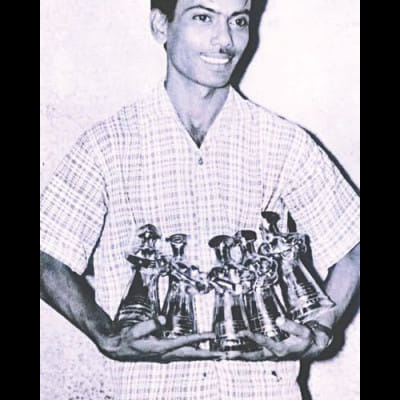
Fate did not allow him to finish Let There Be Light, the film where Zahir wanted to portray the global political unrests and turmoils. I remained in his existence like his own shadow; whether we was writing, or planning, or studying, or taking a walk – I was there for him like a faithful companion. I witnessed his individuality so up close that till this day it all seem very much animated to me. He would be elated on the shooting spots, start operating the camera himself whenever the camera operator delayed to show up, he would check every single light and lens himself to make sure of the quality. He had an amazing sense of lighting. He would pour down and empty himself to attain the best possible output. Yet the whimsical one hardly cared about how he dressed up or lived. I was quite surprised to see his room after our marriage. He owned only about a couple of shirts that he nonchalantly hung on the wall, a pair of worn out shoes and sandals, and a shaving kit that had been with him for god knows how long.
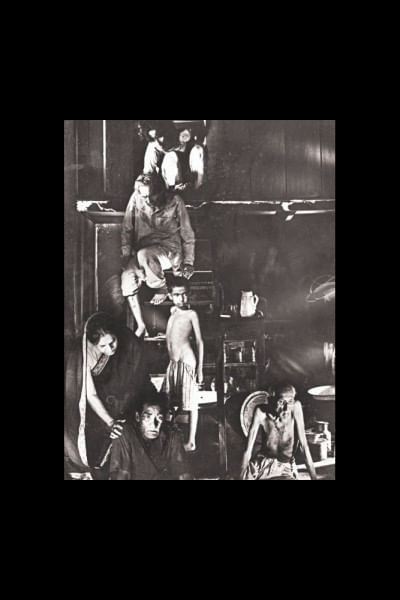
He was that much reluctant about himself. He would rather be consumed with the thoughts of the peripheries and the people in the underdeveloped regions, and how to help them. He would write about them, about the sickly social formations and the rotten consciences of the ruling class. I would mostly be the first reader of his write-ups. I had a good command over Bangla literature, so he would consider my opinions sincerely. Our journey in films together started off with Behula, and continued for about thirty more films. My pairing with Razzak was the most popular demand of the mass back then. During our stay at the Dilu Road house, Zahir once told me – 'Have a shot at film directions, I will help you with the scripts.' I said I felt to have needed more maturity. If I only knew such offers would not be coming my way for much longer! Had Zahir Raihan been alive, I think our film industry would see better days and better infrastructure. He would never allow our culture to decay like it did in the near past.
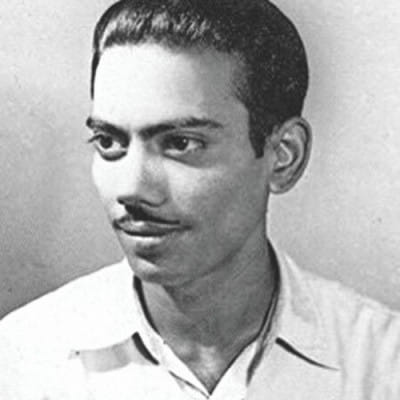
The day he was abducted, an army personnel kept us in check from the early morning. Zahir had to leave without having his breakfast. It was beyond my imagination that I was actually witnessing his final departure. I would not go rehearsing what went through my mind and my body, as I tallied each lingering day. I waited, as if I would hear his footsteps on the stairs any moment, as if he would call me by my name amorously, and come running, for he had been cherishing to embrace me one more time, just as I did. That day never came.
Alive or deceased, every person has to have a symbol of his remaining, a destination where the soul lies perpetual. I lament, for I have not been lucky to find one such destination where I could find my lost partner. We could not give the professed a proper tombstone, where we could meet beyond the limitations of mundane substantiality. Yet I feel proud, I sacrificed my most precious asset for the freedom of my country and my people. My children may have lost their father, but my country proudly procured the most beautiful green and red ever.
Photo courtesy: Suchanda
Transcribed By Tasbir Iftekhar

 For all latest news, follow The Daily Star's Google News channel.
For all latest news, follow The Daily Star's Google News channel. 


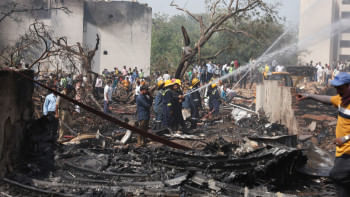
Comments